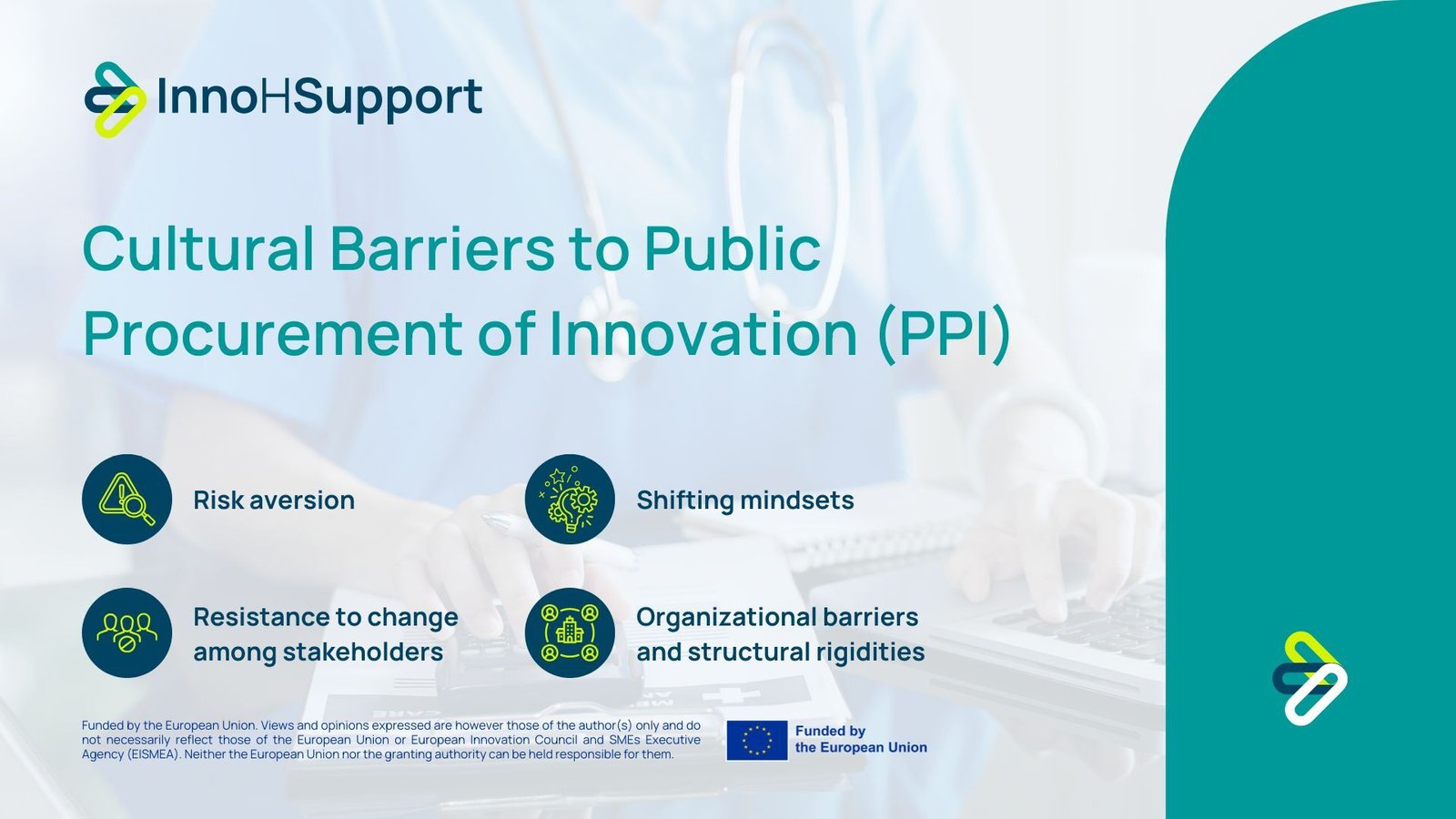
Public Procurement of Innovation (PPI) is an important approach to addressing current healthcare challenges since it offers the potential to meet patients' unmet needs and promote innovation. Healthcare systems face increasing pressures such as the ageing of populations, rising costs, and the need for improved patients’ outcomes. Therefore, PPI has become critical to overcome these issues. Despite its potential, the adoption of PPI in the healthcare sector is still challenging. This is due mainly to cultural barriers that pose complexities and hinder PPI adoption.
These barriers can vary from risk aversion and traditional mindsets to stakeholder resistance, for example. The barriers impede the transition from conventional procurement practices to innovation-driven approaches. These barriers are multifaceted and deeply rooted within organizational and stakeholder cultures.
Understanding and addressing these barriers is critical to gathering the benefits that PPI adoption can promote. The main cultural barriers identified by the InnoHSupport project are discussed in the following paragraphs.
Risk aversion is a pervasive issue in public healthcare procurement. As innovation involves uncertainty, decision-makers perceive it as a high-stakes gamble. This reluctance is highlighted by disjointed procurement processes and complex administrative requirements. Besides that, clinicians' demands frequently misalign with procurement priorities, which increases the challenges for PPI adoption. Addressing these challenges requires systemic changes, including government-supported measures to reduce uncertainty and promote a culture of risk-taking.
An important cultural barrier is the prevalent volume-based mindset that prioritizes cost containment and obtaining high volume over long-term value. Traditional procurement strategies emphasize immediate savings, achieved through bulk purchasing, at the expense of innovation. It is essential to transition to a value-based procurement approach which considers long-term benefits such as improved patient outcomes. This shift demands collaboration among stakeholders to balance competing objectives, embrace a holistic view, and recognize procurement's strategic role in healthcare innovation.
Physicians and other healthcare professionals play a critical role in procurement decisions. Factors such as strong preferences for certain suppliers and products, combined with a reluctance to embrace external ideas, can hinder the adoption of PPI. Thus, it is necessary to engage clinicians early in the procurement process, promoting a shared understanding of the benefits of innovation, and aligning procurement goals with clinical priorities.
Healthcare organizations often operate within rigid hierarchies and adhere to conservative practices that limit innovation. A lack of leadership support and the absence of innovation champions can create difficulties in PPI adoption. It is essential to cultivate leadership that promotes innovative practices, aligns stakeholder objectives, and ensures that procurement teams have the necessary skills and knowledge.
The challenges of the 21st century demand more innovative solutions, and PPI adoption is critical to promoting the needed changes in healthcare systems. Innovation in public healthcare procurement is not merely a technical challenge, but a cultural transformation that demands commitment, collaboration, and strategic vision. PPI adoption requires embracing risk-taking, moving away from traditional mindsets, incentivizing stakeholder collaboration, and updating organizational frameworks. This cultural shift requires efforts from all stakeholders, including policymakers, procurement professionals, clinicians, and suppliers, to pursue innovation as a shared common goal.